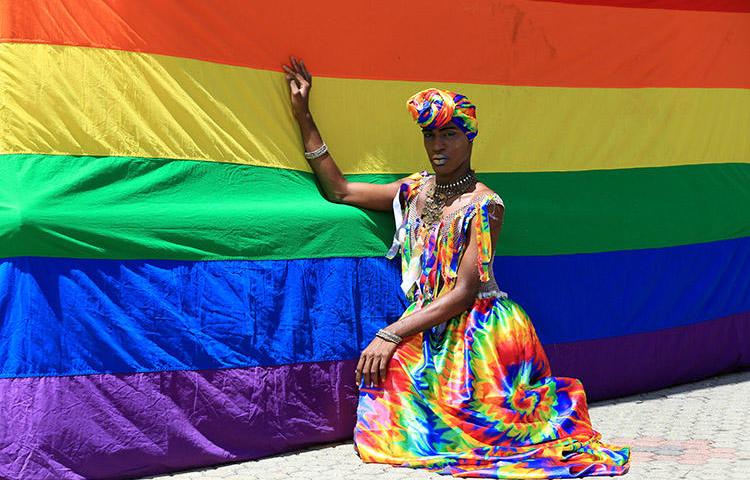
Covering LGBTQ issues brings risk of threats and retaliation for journalists and their sources
To mark the annual International Day Against Homophobia, Transphobia and Biphobia, CPJ spoke with journalists and news outlets based in Argentina, Iran, Indonesia, the U.S., Uganda, and Russia, about the challenges they face reporting on LGBTQ issues.
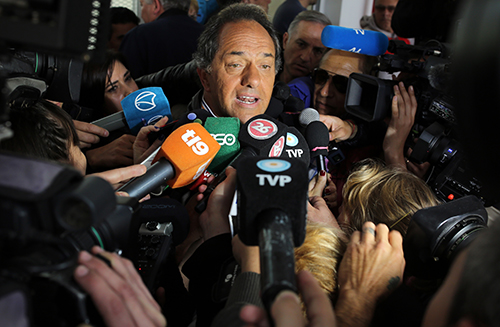
How Argentine broadcast law rewards friendly outlets and discriminates against critics
The moment polls closed for Argentina’s presidential election on October 25, the C5N cable news station breathlessly reported that ruling party candidate Daniel Scioli had triumphed and would succeed President Cristina Fernández de Kirchner, who is banned by the constitution from running for a third consecutive term.
Inter-American court ruling seen as a serious setback
For more than a decade, courts and legislatures throughout Latin America have found that civil remedies provide adequate redress in cases of libel and slander. Over this period, the Inter-American Court of Human Rights — an autonomous judicial institution, which is part of the human rights protection system of the Organization of American States (OAS)…
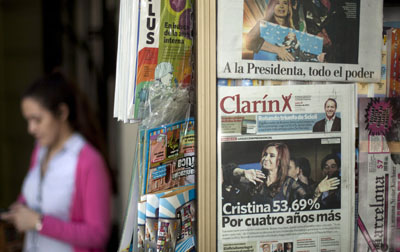
In battle with Argentine president, a misstep by Clarín
The debut of the HD version of Grupo Clarín’s cable news station TN could not have come at a worse time for the Argentine media conglomerate. Conspicuously missing from Monday’s premiere was coverage of a new criminal complaint in which Clarín’s lawyers accused the government of President Cristina Fernández de Kirchner of inciting violence against the…
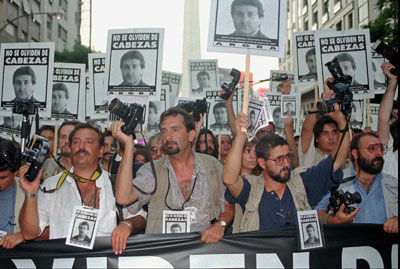
Cabezas’ convicted killers are free, 15 years after murder
It was a cold winter morning more than 15 years ago. As part of my daily routine as a foreign correspondent, I opened my laptop to read the Argentine papers. I was shocked by a headline: my colleague José Luis Cabezas, a photographer for the newsweekly magazine Noticias, had been murdered. His bullet-ridden body was…
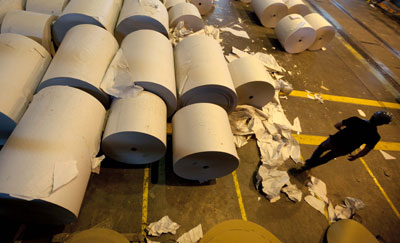
Both sides cry ‘press freedom!’ in Argentine newsprint battle
Argentine Secretary of Commerce Guillermo Moreno made headlines in August 2010 when, at a meeting with the directors of newsprint manufacturer Papel Prensa, he whipped out a pair of boxing gloves, told the women present to clear out of the way, and after dimming the lights, challenged the men to a fight. Moreno’s invitation to…
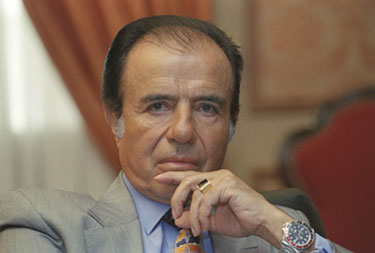
Fighting abusive litigation against journalists
CPJ and others who defend the rights of journalists are rightly alarmed when public officials and other powerful figures instigate baseless criminal prosecutions that can send journalists to prison and force them to pay heavy fines. A case pending in the Inter-American Court of Human Rights, Fontevecchia & D’Amico vs. Argentina, shows how abusive civil litigation…
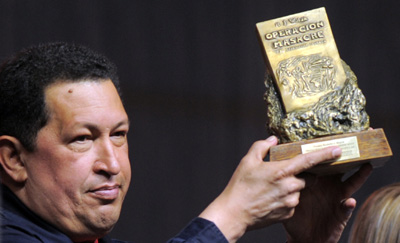
Hugo Chávez, free expression prize winner
Just as the awardee himself anticipated (in his subconscious, after all, he is no idiot), this “freedom of expression award” stirred up disapproval and indignation across the board. Notwithstanding, no one should question the decision of Argentina’s University of La Plata. If anyone has freedom of expression in Venezuela, it’s the prize-winner: He talks and…
Online freedom of expression in Latin America
On his blog, El Oso, David Sasaki has just finished up the third and last part in his series, “Internet Censorship and Freedom of Expression in Latin America.” It’s a brilliant overview of current political and social pressures on free speech and online reporting in the region. Some key observations: Direct governmental censorship in Latin…
Murder, ‘suicide,’ crossfire: A week of journalist killings
Today we will report another murder of a journalist. This one was in Argentina. The last one we documented was a couple days ago–Alberto Graves Chakussanga was shot in the back in Angola. These tragedies are part of our daily work at CPJ, but this week was different. There have been eight killings of journalists…